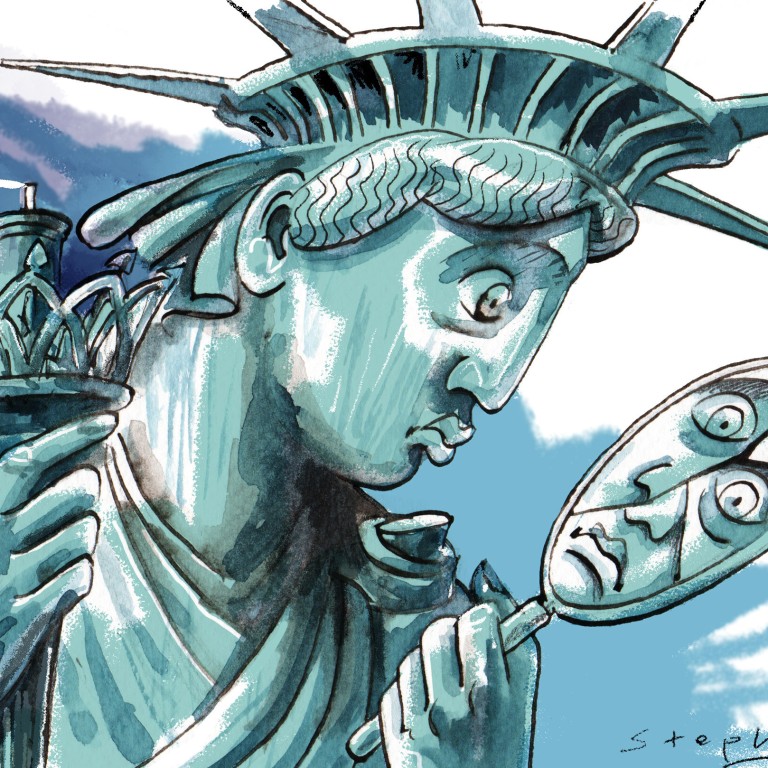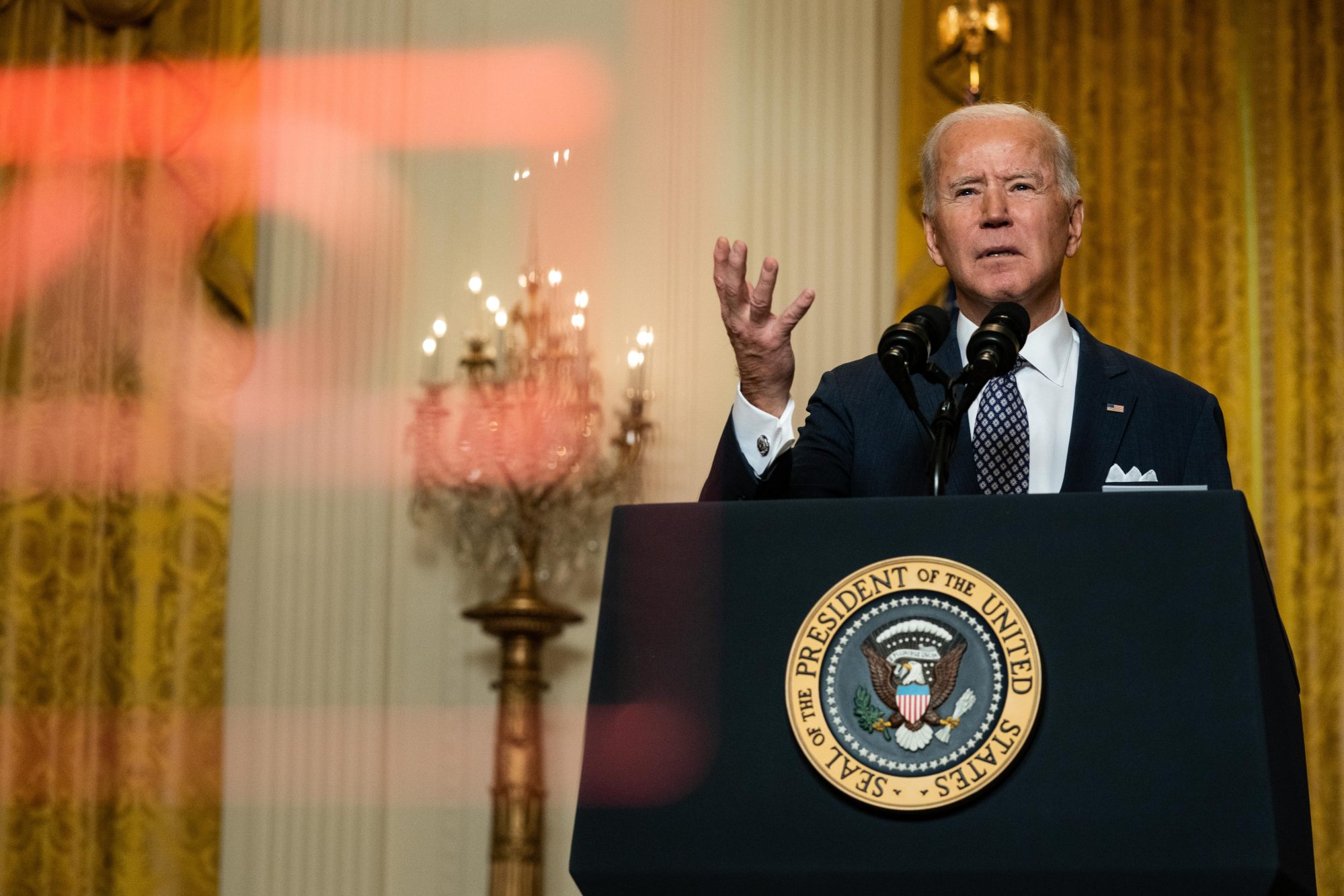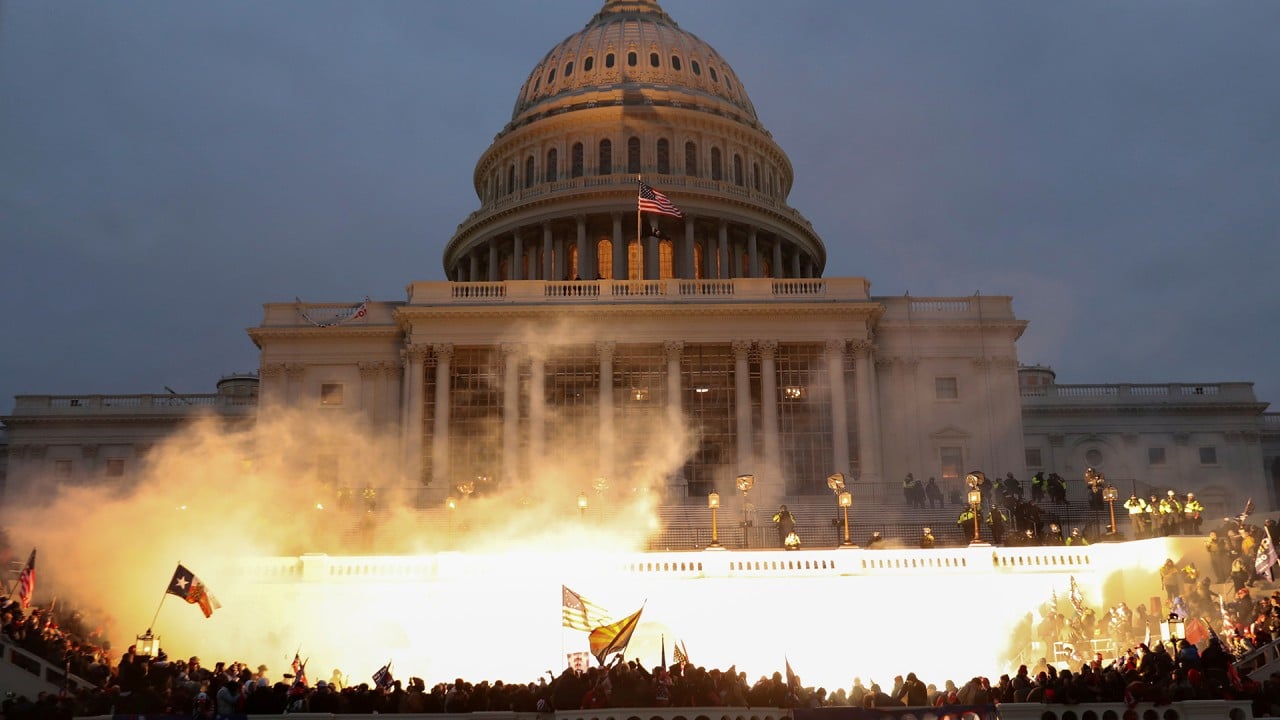
US in decline: why Joe Biden will struggle to return America to its golden age
- America’s decline has happened over a longer period than just Trump’s four-year term, and it will take far longer to reverse it
- The country seems to be facing a profound identity crisis and an ideological divide more bitter and irreconcilable than ever in recent memory
When I first arrived in the US from China in 1949, America’s strengths were undoubted. The nation had just emerged victorious over both Germany and Japan in World War II. While most nations engaged in the war were struggling to rebuild their infrastructure and economies, the US emerged largely unscathed and more economically and militarily powerful than ever.
America’s leadership and democratic institutions were likewise strong. Even after the unexpected death of president Franklin D. Roosevelt in April 1945, vice-president Harry Truman smoothly transitioned into the White House and guided the US through the end of the war.

I believe that was the golden age of America. Of course, there was still domestic trouble in the US at the time. Republicans and Democrats fought partisan battles and levied accusations about communist conspirators. Racial discrimination and segregation still pervaded.
This problem cannot be solved until politicians and the media that happily abets them find a way to move past the hopelessly partisan divide that is paralysing this country. My work in Washington at the Library of Congress and teaching at Georgetown gave me a front-row seat to moments of unrest and division in the nation’s capital.
Yet the divide in this country today seems more bitter and more irreconcilable than at any point I can remember. It is exacerbated by the utter lack of leadership from Capitol Hill. Congressional leaders like Mike Mansfield, Henry Jackson and Bob Dole, who commanded respect across party lines have long since retired with no equivalents emerging in the next generation.
‘Let’s fix our own national messes before competing with Beijing’, says former US diplomat
Neither of these pieces have won resounding praise from historians. The 1619 Project has been criticised for ignoring peer-review suggestions by historians and evidence that does not meet its thesis, while the 1776 Report has been lambasted for its warped presentation of the founders’ views on slavery and the progressive movement.
The fact that, nearly 250 years after the nation’s founding, there could be so profound an identity crisis should be raising alarm bells about the sustainability of the American experiment.
It has not gone unnoticed by the international community. French intellectuals and politicians are warning about the perils of the proliferation of American multicultural and progressive thinking.
Biden attempted to ease these anxieties in his recent speech to European leaders. He argued that democracy “doesn’t happen by accident. We have to defend it, fight for it, strengthen it, renew it.”
He stressed the importance of multilateralism in confronting global challenges: “If we work together with our democratic partners, with strength and confidence I know that we’ll meet every challenge and outpace every challenger.”
It remains to be seen whether his European audience took his words to heart; words alone will surely not be enough to repair the damage that has been inflicted on American prestige. This challenge is far greater than Biden can meet in what is likely to be a one-term presidency.
I have lived in the US for 70 years and fear it may take 70 more before America returns to its golden age. But I am optimistic that it will happen, even if I will not be here to witness it.
Chi Wang, a former head of the Chinese section of the US Library of Congress, is president of the US-China Policy Foundation



